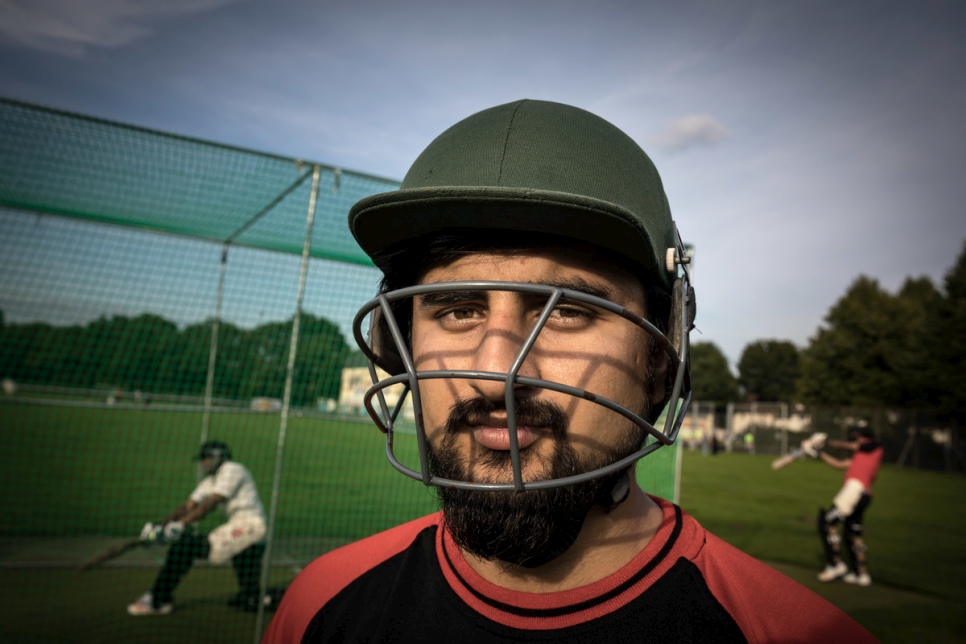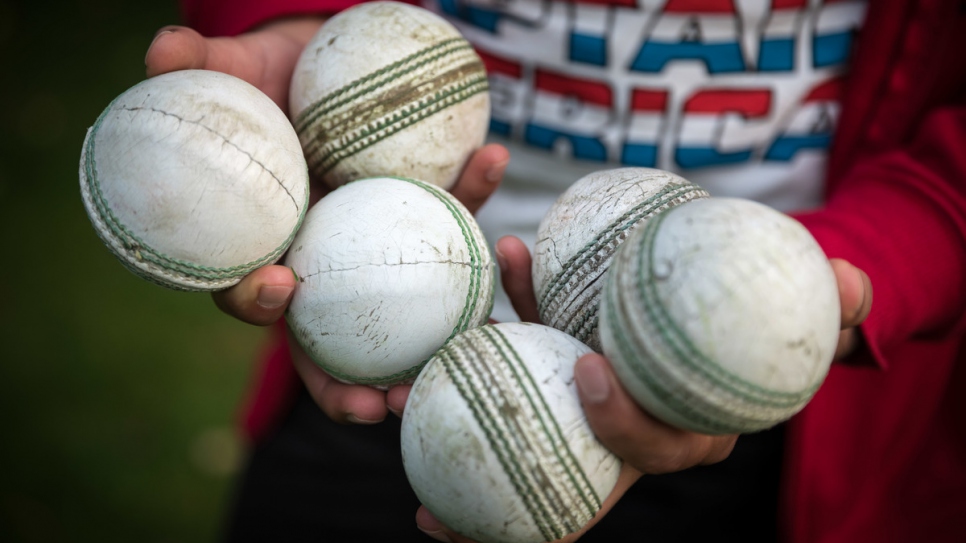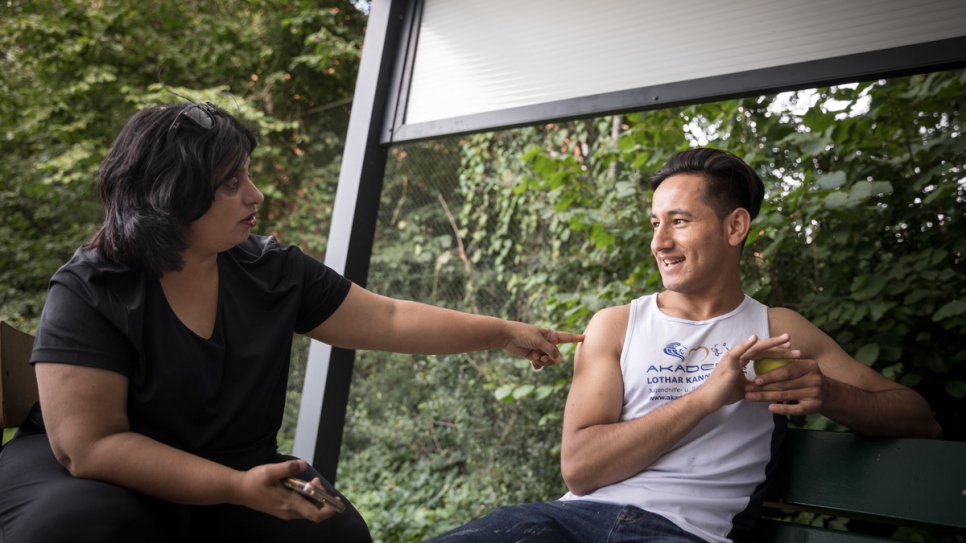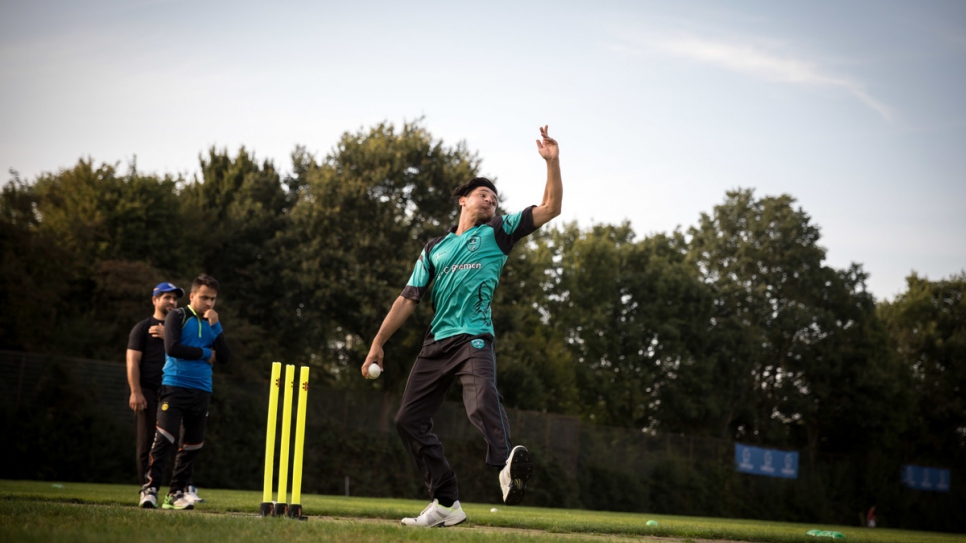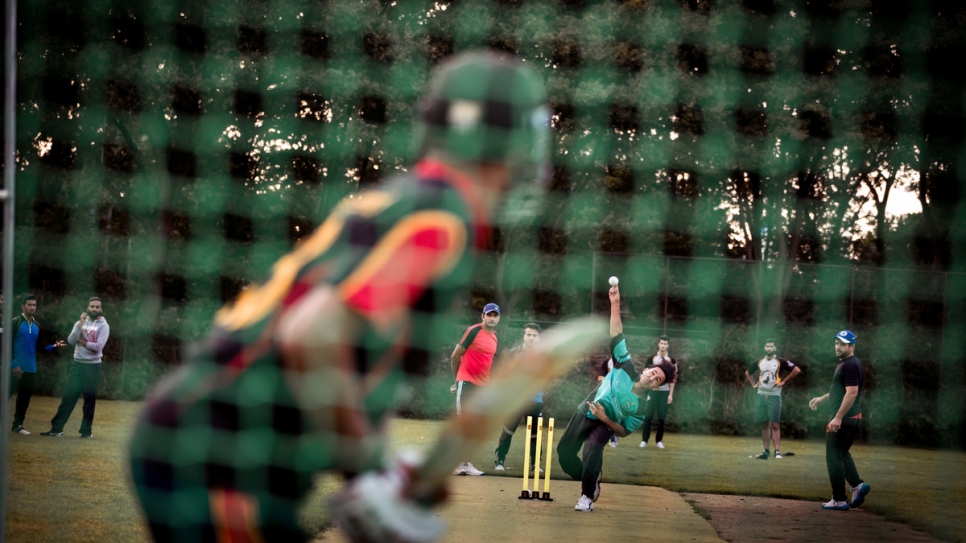Afghan refugees help put Germany on the cricketing map
After fleeing Afghanistan and finding sanctuary in Germany, refugees are helping to bring the game of cricket to their adopted home.
Masih (centre right) fled Afghanistan and now plays cricket for SG Findorff.
© UNHCR/Gordon Welters
On a lush green field in northern Germany, Afghan refugees are playing cricket. Haidar spins the ball to Masih, who bats it to midwicket, where Farooq stands hopeful of a catch.
The Germans are still rather bemused by this game that fires up the Afghans and gives them a sense of home. But thanks in part to the contribution of refugees, Germany is emerging as a cricketing nation.
“I’m passionate about cricket,” says Masih Shams, 19, originally from Kabul. “When I came to Germany, I thought I would never play again. But a boy in school told me there were clubs and I joined up. When I tell my teachers or fellow students, they say: ‘Really, is there cricket in Germany?’”
Almost as surprising is the fact that the SG Findorff club was started by a woman. Nisar Tahir, 47, a Pakistani who grew up in Germany, founded the club four years ago because she and her family missed cricket. When refugees began arriving in Bremen in 2015, she visited reception sites to help them and to spot talent.
“When I came to Germany, I thought I would never play again."
The club has already been a success – last year Bremen were the all-German cricket champions. They are in the semi-finals again this year. And the sport itself is proving therapeutic to young men who have experienced great trauma.
Farooq Sher, 17, from Nangarhar in Afghanistan, came alone to Europe after losing his father in a Taliban attack.
“When I was 14, my mother got a letter from the Taliban saying: ‘Give us your son,’” he says. “She said it was time for me to leave.”
He had played cricket since he was 10. “Bowling, batting, everything, I learned it back in the gully [on the street]. But the Taliban didn’t like cricket, only war.”
Now the youngest player in SG Findorff, Farooq is enjoying his life in Bremen, where he has picked up German and made friends.
“I brought my class to see the cricket ground and did a presentation,” he says. “I told them cricket is a complicated game and three things are important – fielding, bowling and batting.”
Cricket is relatively new to Germany, where 27 million people belong to sports clubs of different kinds. Not only does cricket help refugees to feel at home in Germany but the game could also attract Germans, adding variety and the possibility of new friendships to their sporting lives.
At present, apart from a few German girls in the women’s team, Pakistanis, Indians and Afghans make up most of SG Findorff’s membership. They communicate in a mixture of languages, the lingua franca being Urdu and sometimes German. The under-19 and adult teams participate in both regional and federal leagues.
"The Taliban didn’t like cricket, only war.”
“Here, I came to realize I am a good spin bowler,” says Ghulam Haidar Haideri, 19, from Kandahar, Afghanistan, who plans a career in IT. “Last week, I took five wickets in the Bremen versus Hamburg one-day match.”
Masih does everything from batting to wicket-keeping. “If I was playing at such a high level in Afghanistan, I would probably consider a career, but here it can be no more than a hobby. I bring my medals home to my mum.”
Today, the players are tired after their three-hour training session. Masih has been hit in the chest by a ball and it hurts. Haidar must get up early tomorrow morning. But Farooq, on his way home to the Lothar Kannenberg reception centre, still has the energy to visit Bremen’s old town by night.
In the square is a sculpture of the animal musicians from the Grimm brothers’ fairy tale ‘Die Bremer Stadtmusikanten’ – a rooster standing on the back of a cat, standing on a dog, standing on a donkey. Farooq rubs the bronze legs of the donkey, a Bremen custom for attracting good luck.
Founder Nisar knows how much cricket means to these young men.
“Here on the cricket field, you forget all the negative energy,” she says. “There is only the positive, coming and going with happiness.”

